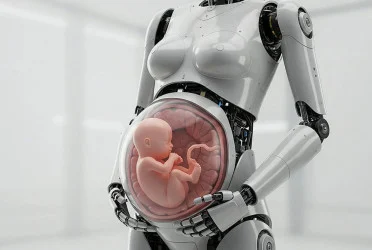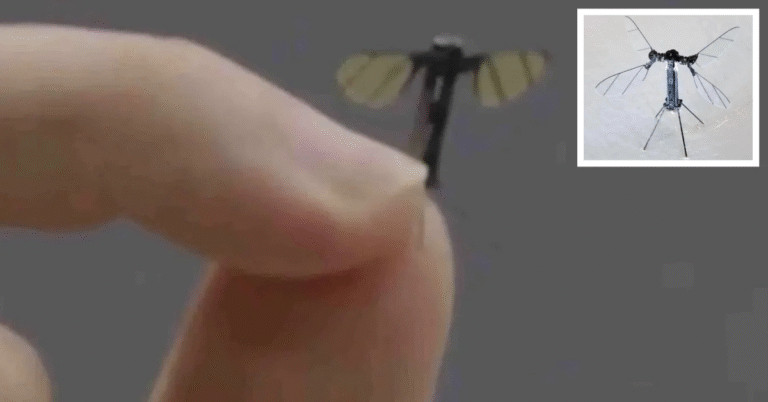A robotics company in China says it is close to releasing the world’s first humanoid “pregnancy robot” — a machine designed to mimic a full-term pregnancy and even give birth to a live baby.
The project is led by Dr. Zhang Qifeng, a PhD graduate of Nanyang Technological University and founder of Kaiwa Technology in Guangzhou. He revealed that the robot is built with an advanced incubation pod inside its abdomen, which functions as an artificial womb.

According to Zhang, the artificial uterus has already shown promising results in animal testing. The technology uses artificial amniotic fluid and a nutrient system that feeds the fetus through an umbilical cord. If development continues as planned, the robot could be released within a year, with an estimated cost of under 100,000 yuan (around £10,000 or $14,000).
“The artificial womb technology is already at a mature stage,” Zhang told Chinese media outlet Kuai Ke Zhi. “Now it needs to be implanted in the robot’s abdomen so that a real person and the robot can interact to achieve pregnancy, allowing the fetus to grow inside.”
While the fertilization process and exact implantation method have not yet been detailed, the robot is designed to simulate pregnancy from conception to delivery. Zhang noted that similar experiments have previously kept premature lambs alive for weeks in a “biobag,” but this would be the first attempt at a full gestation leading to birth.

The announcement quickly spread across Chinese social media, sparking both fascination and criticism. Some saw it as an opportunity for people unable to conceive naturally or through IVF, while others called it “unnatural” and raised concerns over depriving babies of vital biological and emotional connections with a natural mother.
“If the price is only half of my annual salary, I would buy it immediately,” one online commenter wrote. Another said: “I tried artificial insemination three times but failed all of them. Now I have a chance to have a baby.”
Medical experts, however, remain skeptical. They warn that pregnancy involves far more than physical development, pointing to the crucial roles of maternal hormones, immune system interactions, and neurological influences that current science cannot yet replicate.
Zhang has reportedly been in discussions with authorities in Guangdong Province to prepare legislation and policy for the potential release of the pregnancy robot, a step that could reshape medicine and ignite new ethical debates.
For now, the project remains experimental, but if successful, it could mark one of the most radical technological shifts in reproductive science.











